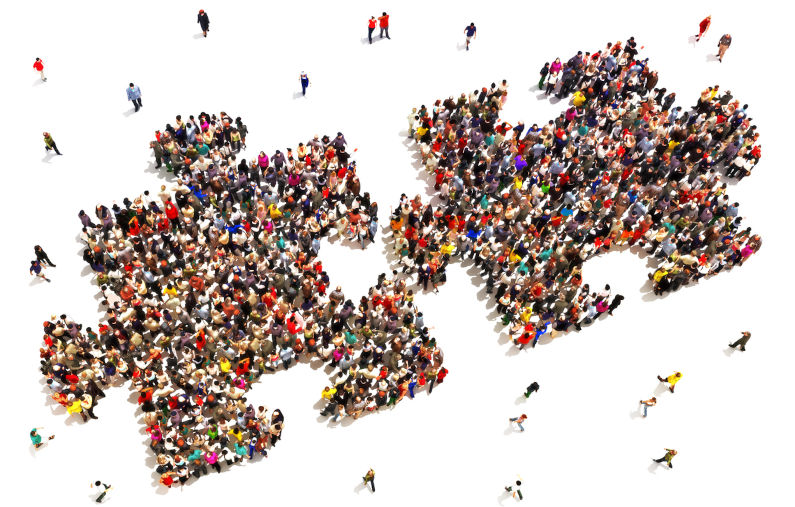The politics of democracy’s decline
October 27, 2025
A report on voter pessimism casts more light on why Australian democracy is failing. The answer is to deepen political debate.
A new survey shows 56% of Australian voters believe the next generation will have a worse life than their (the voter’s) parents’ generation. Only 20% believe life will be better (with the rest saying quality of life will be about the same).
The usual analyses of such results focus on demographic differences. The article from which I learned of the survey notes only that One Nation supporters are particularly pessimistic, with 78% believing life will be worse. The context is the doubling of One Nation support since the last federal election to 12% of first preferences, pipping the Greens at 11%.
While there are substantial differences among some groups of voters, the results suggest relatively similar views across many groups. For example, among high income earners, 54% said life would be worse; among those on low incomes, 59% said this. Among professionals and managers, 53% thought life would be worse; for blue-collar workers, 61% made this choice. Among the youngest, Gen-Z, 60% thought life would be worse; for Baby Boomers, the figure was 51%. For women, it was 59%; for men, 53%.
The survey is the “Federal Political Snapshot – October 2025”, a Redbridge-Accent Research Report. I have followed surveys like this for decades as part of my research into human progress, the belief that life always gets better. It is a central tenet of Western civilisation and culture.
The results are not a surprise. When I asked in a 2015 poll about quality of life in Australia, taking into account social, economic and environmental conditions and trends, only 16% of Australians thought life was getting better; 35% thought it was staying about the same; and 49% thought it was getting worse.
Findings like these offer important insights into why Western liberal democracies are mired in crises and riven by conflict and mistrust. The reasons are not primarily issues such as the cost of living, housing or immigration, on which politics focuses. Nor are the reasons primarily the deepening global challenges such as climate change, pollution, war and uncontrolled technological development.
These factors no doubt play a part, but they also feed into a more pervasive loss of existential confidence and security. This loss includes a disillusionment with the “ official future", a lack of faith in the future that governments promise, and on which they base their policies. This matters.
The official future is one constructed around notions of continuing material progress and economic growth, and scientific and technological advances, with the aim of providing an ever-rising standard of living. It is increasingly being challenged by sustainable development as a framework for thinking about human betterment. (Authentic) sustainable development does not give economic growth overriding priority. Instead, it seeks a better balance and integration of social, environmental and economic goals and objectives to produce a high, equitable and enduring quality of life.
Standard of living and quality of life are very different things. We need to focus less on the former and more on the latter, less on consumption undertaken for short-term, personal gratification, and more on investment directed towards broader and longer-term social and environmental goals.
But you would not know this from political debate. Politics remains stuck in a paradigm that constrains electoral choice and is jeopardising democracy. This is largely because the mutually reinforcing cultures of journalism and politics are outdated and dysfunctional, deepening our difficulties and divisions rather helping to resolve them.
This failure lies behind the unease, mistrust, and disenchantment in the electorate, not just political corruption and incompetence and policy mistakes. It also helps to explain the rise of authoritarianism and conspiracy beliefs.
The demise of the official future is causing a cascade of consequences. Our visions of the future are woven into the stories we create to make sense and meaning of our lives. This “storying” is important in linking individuals to a broader social or collective narrative, and affects both our own personal well-being (by enhancing our sense of belonging, identity and agency, for example), and societal functioning (by engaging us in the shared task of working for a better future).
Humans need a sense of order and continuity and this depends in part on having a positive view of the self, the world and the future, on seeing the world as comprehensible, manageable and meaningful. The narrative of the “official future” no longer offers this reassurance.
Political debate is impervious to this layered political complexity. I wrote almost 25 years ago in an essay on humanity’s precarious future that we needed to think more deeply about our situation and our destiny. Until this happened, our politics would become increasingly irrelevant to what is most important to us.
“In ordinary times,” I said, “it is perhaps normal for different planes of perception and understanding of the human condition to remain relatively separate and distinct, with little ‘friction’, or influence, occurring between them. In transitional epochs, when what it is to be human is undergoing profound evaluation and radical alteration, these planes of perception need to come together in a single, interwoven, public conversation.”
Ours was such a time, I said then. But we haven’t grasped that yet.
The views expressed in this article may or may not reflect those of Pearls and Irritations.


